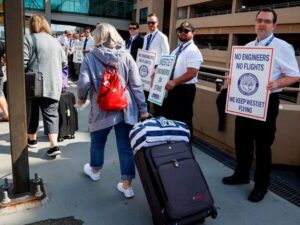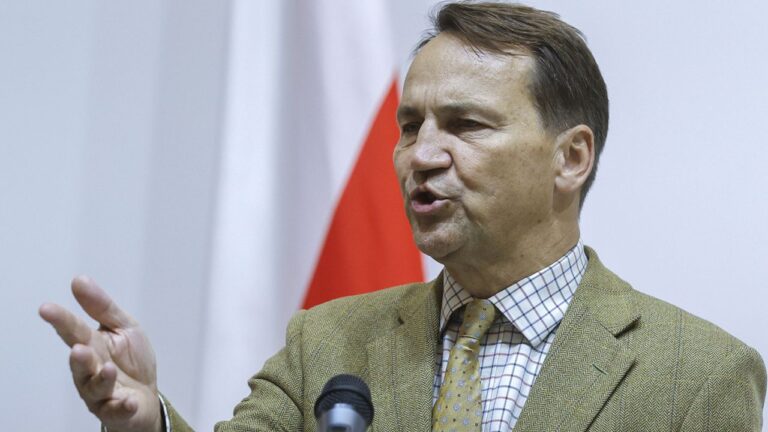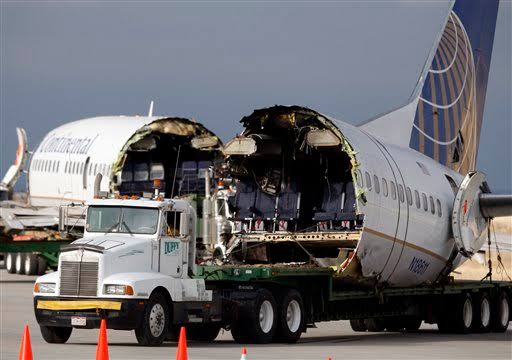WestJet Sstrike Causes Turbulence for Winnipeg travellers
WestJet Strike Causes Turbulence for Winnipeg Travellers
Introduction
In late June 2024, thousands of travellers across Canada, including those in Winnipeg, faced significant disruptions due to a sudden strike by WestJet’s aircraft mechanics.
The strike, led by the Aircraft Mechanics Fraternal Association (AMFA), resulted in the cancellation of over 400 flights, affecting nearly 49,000 passengers.
With Winnipeg being a key hub for domestic and international travel, the effects of the strike were particularly pronounced, leaving many passengers stranded, frustrated, and scrambling for alternative travel options.
This article explores the causes of the WestJet strike, its impact on Winnipeg travellers, government intervention, passenger experiences, and the broader implications for Canada’s aviation industry.
Background of the WestJet Strike
The labor dispute between WestJet and its aircraft mechanics had been simmering for months before reaching a boiling point in late June 2024.
WestJet’s mechanics, represented by AMFA, were engaged in tense negotiations over wages, working conditions, and job security.
Despite multiple rounds of talks, no agreement was reached, and on June 28, the mechanics initiated a strike, citing WestJet’s unwillingness to meet their demands.
The timing of the strike, which coincided with the Canada Day long weekend, added to the chaos, as thousands of travellers had planned to fly for vacations, family reunions, and business trips.
Despite last-minute efforts by the federal government to prevent the strike through a ministerial order for binding arbitration, AMFA proceeded with industrial action, leading to an immediate operational crisis for WestJet.
Impact on Winnipeg Travellers
Flight Cancellations and Delays
Winnipeg’s James Armstrong Richardson International Airport saw widespread flight cancellations and delays, with many flights grounded due to a lack of certified mechanics to ensure aircraft safety.
Passengers booked on WestJet flights to destinations like Toronto, Vancouver, Calgary, and international locations such as Cancun and Las Vegas were left scrambling for alternative travel plans.
According to airport officials, at least 50 flights to and from Winnipeg were either canceled or significantly delayed over the weekend.

Some passengers were notified of cancellations just hours before departure, leading to confusion and frustration.
Stranded Passengers and Accommodation Challenges
With flights disrupted, many travellers in Winnipeg found themselves stuck at the airport, struggling to rebook their flights or find alternative means of transportation.
Hotels in the area quickly filled up, leaving some passengers with no choice but to sleep at the airport while waiting for updates from WestJet.
One Winnipeg passenger, Sarah Thompson, shared her frustration:
“I was supposed to fly to Toronto for a family wedding, but my flight was canceled at the last minute.
WestJet offered a refund, but rebooking with another airline was nearly impossible because prices had skyrocketed. I ended up missing the wedding completely.”
Such stories were common, as demand for alternative flights surged, causing ticket prices to soar and making last-minute rebooking financially unfeasible for many travellers.
Disruptions to Business and Medical Travel
The strike not only affected leisure travellers but also those traveling for essential reasons, such as business and medical appointments.
Some passengers with urgent medical needs had to reschedule procedures in other cities, adding stress and uncertainty to an already difficult situation.
Local businesses in Winnipeg also suffered, particularly those reliant on incoming business travel. Conferences, meetings, and events had to be postponed or canceled, leading to financial losses for companies that depend on corporate clients flying in.
Government Intervention and Response
In an effort to mitigate the disruption, the federal government intervened by issuing a ministerial order for binding arbitration before the strike began.
However, AMFA proceeded with the strike, arguing that WestJet had failed to negotiate in good faith.
Transport Canada urged WestJet and the union to find a quick resolution, citing the negative economic impact and inconvenience caused to thousands of Canadians.
Eventually, after two days of intense negotiations, WestJet and AMFA reached a deal on June 30, bringing an end to the strike.
Key Terms of the Agreement
The final agreement included:
A wage increase for mechanics, bringing their salaries in line with industry standards.
Improved job security provisions.
Adjustments to work schedules and overtime policies.
While the deal resolved the immediate crisis, the damage to WestJet’s reputation and passenger trust had already been done.
Passenger Reactions and Compensation Issues
Following the strike, WestJet faced backlash from passengers demanding refunds, compensation, and better communication.
Many complained about the lack of timely updates regarding their flights, with some only learning about cancellations upon arriving at the airport.
Under Canada’s Air Passenger Protection Regulations (APPR), passengers affected by flight cancellations due to airline labor disputes may be entitled to compensation. However, WestJet argued that the strike was beyond its control, leading to disputes over compensation claims.
Consumer rights advocates urged affected passengers to file complaints with the Canadian Transportation Agency (CTA) to ensure they received fair treatment.
Many travellers also called for stronger protections against airline disruptions, including mandatory compensation and alternative travel arrangements.
Broader Implications for Canada’s Airline Industry
Labor Relations in Aviation
The WestJet strike highlighted the growing tensions between airline management and employees across Canada’s aviation sector.
In recent years, workers in various airline roles—pilots, flight attendants, and ground crews—have pushed for better pay and working conditions, citing rising workloads and inflation.
If airlines fail to address these concerns proactively, similar labor disputes could arise in the future, leading to more travel disruptions.
The Need for Better Crisis Management
The chaotic handling of the strike exposed weaknesses in airline crisis management.
Many passengers criticized WestJet for poor communication, lack of customer support, and inadequate contingency planning. Going forward, airlines must improve their crisis response strategies to minimize the impact of labor disputes on travellers.
Calls for Policy Reforms
In the wake of the strike, there have been renewed calls for policy reforms to strengthen consumer protections. Proposals include:
Stronger compensation laws for passengers affected by airline strikes.
More stringent requirements for airlines to provide alternative travel arrangements.
Improved transparency in labor negotiations to prevent last-minute strikes.
If implemented, these measures could help prevent similar travel disruptions in the future and restore public confidence






